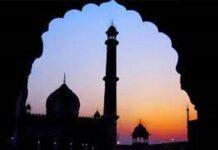In a democratic system, people usually take help of psephology, a division of political science, to study the statistical revision of elections and trends in voting. But in India, the biggest functional democracy in the world, psephology is replaced with astrology. On December 12, 2018, Telangana Rashtra Samithi president K Chandrasekhar Rao was to take oath as the State’s Chief Minister between 1.24 pm and 3.04 pm. Who fixed that time? Not some official, but KCR’s head astrologer Laxmi Dharmacharya.
Rao, is known for his steadfast belief in Indian astrology, considers the number 6 lucky for himself after being told so by his priest who got it from astrological chart. Sum total of the date 12-12-18 is also 6. According to Dharmacharya, the auspicious Abhijith Muhurt was applicable during the time he scheduled the oath taking ceremony.
Also, right after the announcement of election dates in Telangana, politicians, across party lines, were reportedly seen flocking to Arun studio in Hyderabad to get their pictures clicked. This was because it’s strongly believed that a photograph clicked at this studio ensures a sure shot election win. According to a report published in local dailies, many leaders like KT Rama Rao, T Harish Rao and Kadiyam Srihari, call studio owner Satish to their residences as they cannot visit the studio owing to security concerns.
But it’s not just K Chandrashekar Rao and Telangana. In Madhya Pradesh, Congress leader Jyotiraditya Scindia was seen flaunting a garland made of lemon and chillies while campaigning in Mandsaur to ward off the evil eye. Even Rajasthan BJP strongman Ghanshyam Tiwari waited for 13 minutes at the office of the returning officer to file his nomination for the ‘auspicious moment’ before submitting his papers. He reportedly even chanted a mantra before going ahead. But, Tiwari lost the elections.
But Indian politics’ “tryst” with astrology dates back to its Independence. What he later referred to as an “epiphany”, Louis Mountbatten, the last Viceroy of India, chose August 15 as the Independence Day as it resounded deeply with him as it was the day when the Japanese had surrendered Burma. In World War II, Mountbatten was the Supreme Allied Commander of Southeast Asia.
But this decision didn’t go down well with India’s astrologers, who found August 15 to be a deeply inauspicious day. According to La Pierre and Collins, authors of the book Freedom at Midnight, one astrologer in particular, Swamin Madamanand, wrote to Mountbatten, saying, “For the love of God, do not give India independence on August 15. If floods, famine and massacres follow, it will be because free India was born on a day cursed by the stars.” As a compromise, India was granted independence at the midnight hour between August 14 and 15 because for the west a new day begins at midnight, but according to Hindu calendar, it begins at sunrise. In the 21st century, when India is trying to send Chandrayaan to the moon, astrology still dictates the term for many of the country’s major events.
According to a report published in local dailies, Andhra Pradesh Chief Minister Chandrababu Naidu’s personal astrologer Srinivasa Gargeya warned him that June 6 was inauspicious for a ‘bhoomi puja’ for Amaravathi, the State’s new capital. But surprisingly he brushed aside the advice and held the ceremony that very day. Although the inauguration of his camp office at Vijayawada was postponed as he missed the auspicious time of 10.30 am set by astrologers.
Rajasthan has too seen the influence of astrology. Legislators in the Rajasthan Assembly demanded that the Assembly building be purified while claiming that it was haunted by spirits. They backed their demand by saying the House, which is built on a cremation ground, never retains its maximum strength of 200 members for far too long either because someone resigns, someone dies, or someone goes to jail. Some news reports said that a priest was even spotted performing rituals near the Assembly entrance. Like dates, places are auspicious or inauspicious too. No sitting Chief Minister of Uttar Pradesh is supposed to visit Noida because it’s believed that a visit to the city means losing power and never assuming office again.
Going by the belief, Akhilesh Yadav stayed away from Noida. He did not attend the Asian Development Bank Summit held in May 2013. When his presence became important to launch Rs 3,300-crore development projects, including access to six-lane Yamuna Expressway in Noida, he did that through video conferencing from Lucknow. Even the family members of Dadri lynching victim Mohammad Akhlaq were taken to Lucknow to meet Akhilesh Yadav. Before him, Mulayam Singh Yadav, Kalyan Singh and Rajnath Singh too have avoided going to Noida.
It’s said that the superstition attached with Noida began with former Chief Minister Veer Bahadur Singh, who was asked to step down in June 1988 by the Central leadership. Although Bahujan Samaj Party chief Mayawati braved the superstition during her term as Chief Minister (2007-12) and attended programmes organised in Noida. When the BSP lost power in the 2012 Assembly elections, the Noida jinx was back in the news.
Another Chief Minister who dared to challenge the jinx was Adityanath. He visited Noida to inaugurate the magenta line of the Delhi Metro in December 2017. But just three months later, the BJP lost the crucial Gorakhpur and Phulpur by-polls.
Indian politicians believe that if the party wins it’s the charisma of the leader that should get the credit, but when it loses it’s because of the jinx.
What’s Noida for Uttar Pradesh is Ashok Nagar and Ichhawar for Madhya Pradesh. It’s believed that MP Chief Ministers who set foot in these places, end up losing power. Bihar has not escaped the limelight on this issue. In the middle of State Assembly elections, a video clip went viral on social media showing Chief Minister Nitish Kumar meeting a tantrik.
According to news reports in Kolkata dailies, astrologers were trying to form an alliance between Mamata and PM Narendra Modi just before the last general elections. Astrologers in Kolkata say Didi would have to join hands with Modi post elections for a stable government at the Centre. This, they said, was an inevitable conclusion given the position of the stars. To make things work properly, astrologers even organised havans and special puja. “We are confident Mamata Banerjee will align with Narendra Modi as their differences will soon disappear after today’s prayers,” claimed a confident Bishumohan Pahari who conducted the havan.
The Left-front leaders are perhaps the only mainstream politicians in India who don’t take refuge under the stars. Since the next general elections are around the corner, India is again going to witness a tsunami of predictions, calculations and zodiac charts of leaders across party lines. While democracy is supposed to be by the people, of the people and for the people. Indian politicians have replaced the word people with superstition.#KhabarLive







